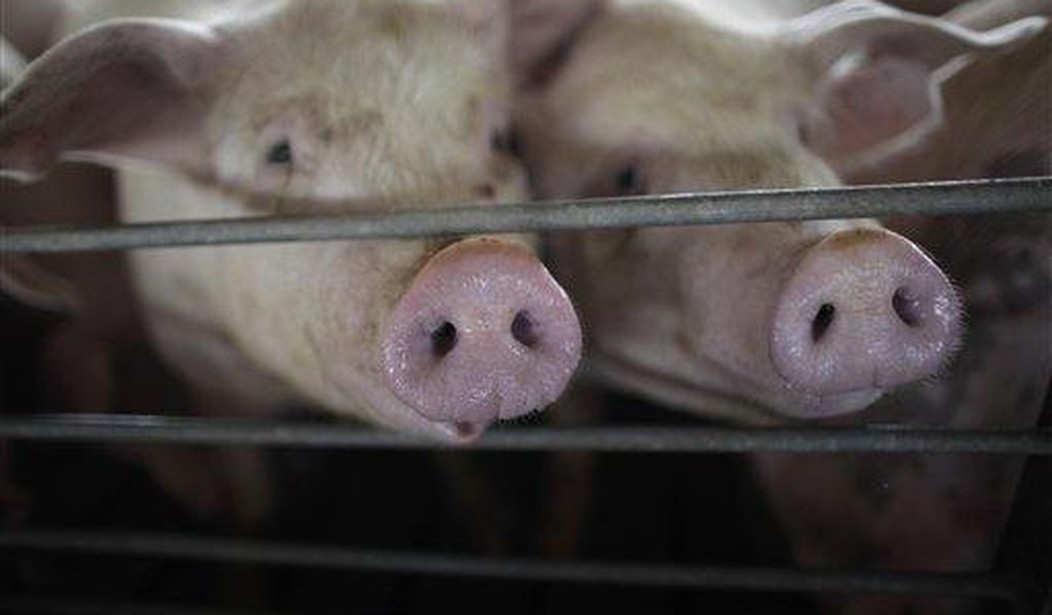The Supreme Court on Tuesday will take up a challenge to California’s Proposition 12, which sets animal welfare standards two industry groups are fighting.
At issue is whether voters in The Golden State can set rules for farmers in the Midwest and North Carolina, and thus regulate the pork industry nationwide.
Proposition 12 bars the sale in California of uncooked pork products when the seller knows or should know that the meat came from the offspring of a sow – a breeding pig – that was confined “in a cruel manner.” Among other things, this means that breeding pigs must have at least 24 square feet of living space, which is roughly the size of two bath towels and 10 square feet more than the “gestation crates” used by the vast majority of commercial operations. Violators face fines and the possibility of a 180-day prison sentence for each sale of pork in California that does not meet the state’s standards.
The National Pork Producers Council and the American Farm Bureau Federation went to federal court in California in December 2019 to challenge the law. They argued that Proposition 12 violates what is known as the “dormant commerce clause” – the theory that, even if the Constitution does not explicitly say anything about state law, the Constitution’s grant of power over interstate commerce to Congress also means that states cannot pass laws that discriminate against interstate commerce.
A federal district court rejected the challengers’ argument, and the U.S. Court of Appeals for the 9th Circuit upheld the lower court’s decision. The challengers then came to the Supreme Court, which in March of this year agreed to weigh in.
The challengers argue that Proposition 12 violates the dormant commerce clause because, as a practical matter, it will not only regulate the pork industry outside of California, but in fact virtually all of its impact will fall outside of California. California, the challengers note, has only one-tenth of 1% of the country’s breeding pigs, so virtually all of the pork consumed in California originates outside the state. Moreover, the challengers add, because one pig can be processed into several different cuts, and there is no way to know where a particular cut of meat will eventually be sold, all pork producers will effectively be required to comply with Proposition 12. (SCOTUSblog)
Recommended
Pork producers say the the rule could cost the industry between $290 million to $350 million to be in compliance, which would be passed on to consumers nationwide.
The Biden administration reportedly wants SCOTUS to side with the pork producers since Prop 12 has "thrown a giant wrench into the workings of the interstate market in pork" and would be a "wholesale change in how pork is raised and marketed in this country."

























Join the conversation as a VIP Member